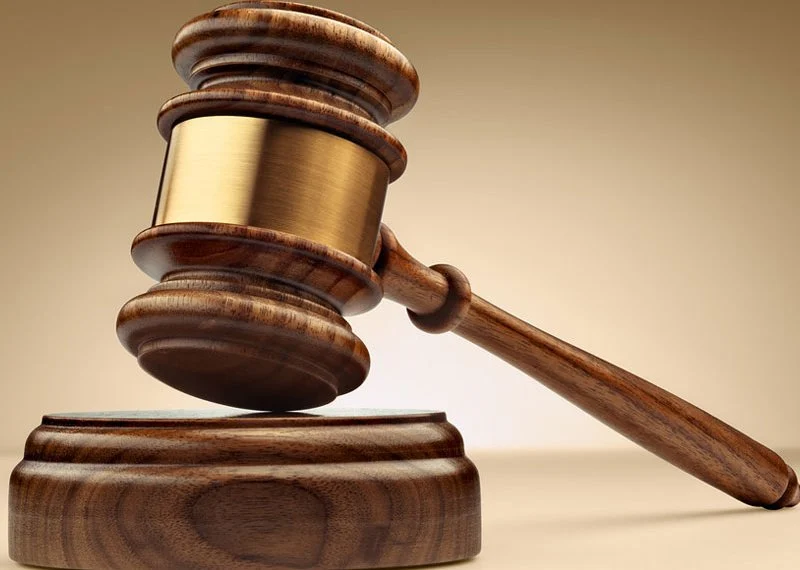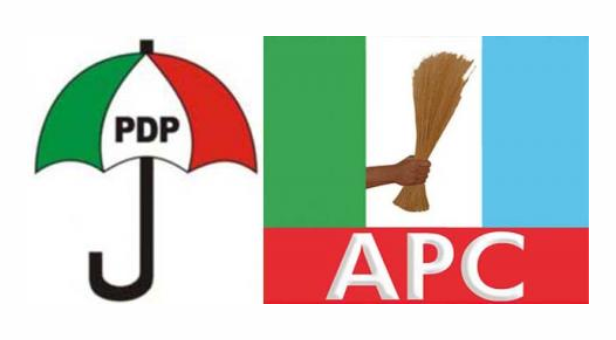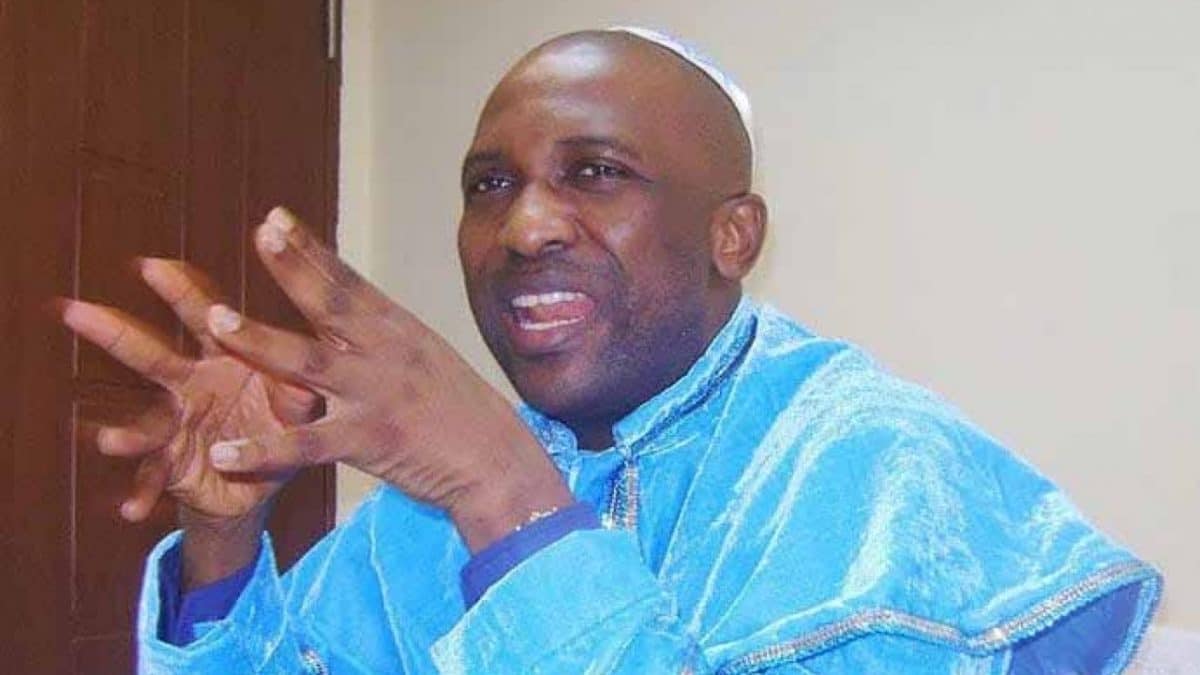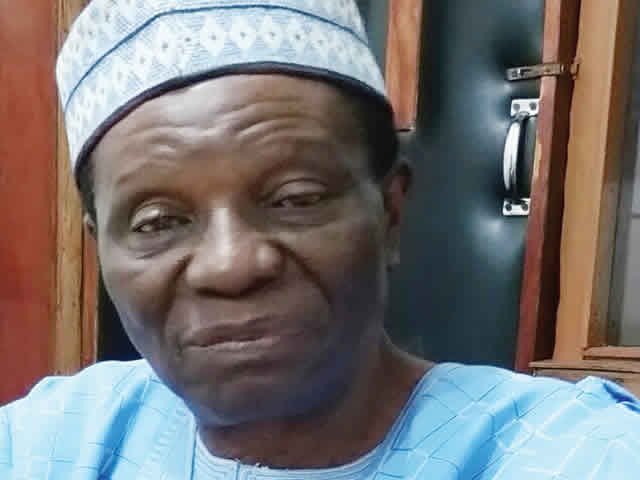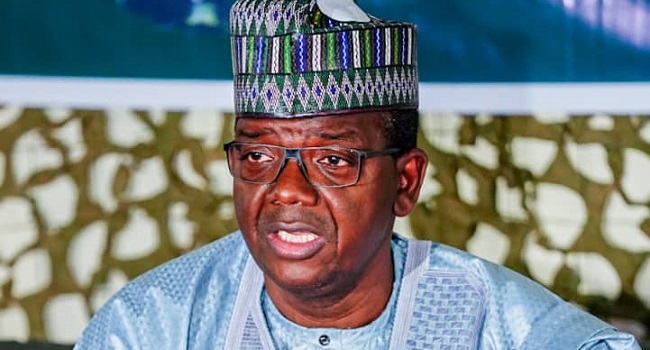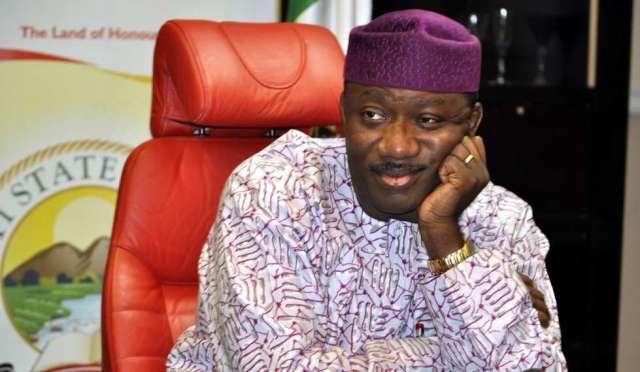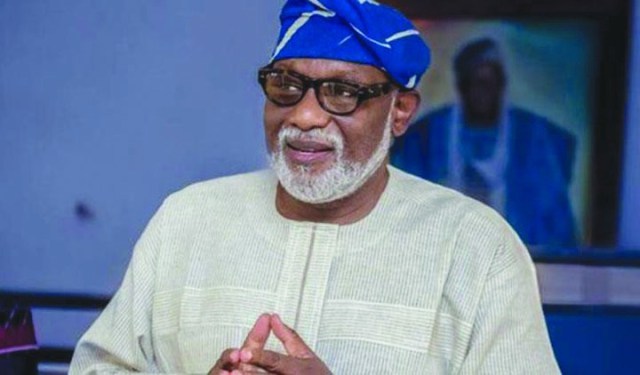By Chidi Amuta
We are witnessing the coming of a new type of politics. Between the ruling All Progressive Congress(APC) and its rival, the Peoples Democratic Party (PDP), some strange political bad manners is taking root. In this political tradition, the actions and conducts of politicians have no bearing to the prevailing mood of the nation. Politics is seen as an independent province of activities that have little or nothing to do with solving the daily problems of the electorate.
In the playbook of this new school, politics is transacted above worsening insecurity, spreading hunger, collapse of vital infrastructure and a general mood of despair and disillusionment among the people. Politicians even find it demeaning to dwell on these mundane troubles lest they reduce their stature or de-market their parties. The parties themselves have become more like alien cults, cabals of insensitive visiting overlords who occasionally look in to see how the natives are doing.
The two dominant political parties are the theatres of this drama of alienation and political bad manners. Recently, both parties have engaged public attention on matters that have to do with their internal incoherence. The APC, long held captive by the reign of a caretaker national executive headed by Governor Mr. Mai Mala Buni of Yobe State, has been teetering on the brinks of virtual implosion. In spite of the appearance of coherence and unity under the leadership of president Buhari, the party is infested with factionalism and conflicts in nearly every state of the federation. Any number of spurious law suits (reportedly up to 26!) are flying around various levels of the nation’s judiciary, filed by parties within the APC. Endless reconciliation efforts have yielded little or no results.
Matters almost came to a head in Mr. Buhari’s current absence when APC governors broke into two rival factions. A pro- Buhari faction was going along with the scheduled party convention for 26th March when a rival formation struck. In an amateurish political coup, the rival faction of APC governors sought to hijack the leadership of the caretaker executive while both President Buhari and Governor Mai Buni were abroad on medical vacation. INEC cried fowl. The plight of the party convention was only salvaged by Buhari’s intervention on the side of the status quo. Let us hope that Mr. Buhari’s lame duck incumbency continues to command the followership of his party’s pack of ambitious and rebellious governors.
While Buhari’s intervention may have temporarily saved the party some face in the immediate countdown to the convention of the 26th March, there are enough grounds for trepidation after the convention when the stakes get higher. The struggle for the APC presidential ticket will be nasty and brutish. While the brief political brawl ensued, matters of governance and general welfare of the citizenry took a back seat. Between the factions of governors on both sides of the divide, no one heard of any fundamental disagreement on policy, ideology or even tangential issues from whatever the moribund APC manifesto. It was all a power grabbing contest and a jostling for vantage positions for Buhari’s job.
A similar scenario played out in the PDP but from a different direction. The battle lines in the PDP are also among overly ambitious governors. A select conclave of governors led by Rivers State’s Nyesom Wike with his cohorts Governors Bala Mohammed of Bauchi, Abiodun Makinde of Oyo State, Benedict Ayade of Cross River State and Ifeanyi Ugwuanyi of Enugu State seem to have concluded that they will have to produce the next presidential candidate of the party.
Between these ambitious governors and long standing members of the party like former Vice President Atiku Abubakar, former Anambra State Governor Peter Obi and former Senate President Anyim Pius Anyim, the battle lines for supremacy and vantage positioning for the 2023 presidential ticket seem to have been drawn. The schism would be a hard one for new party Chairman Iyiorcha Ayu to bridge.
The tension in the PDP made a nasty public outing in the recent embarrassing exchange between Edo state governor Mr. Godwin Obaseki and his boisterous Rivers state counterpart, Mr. Nyesom Wike. There would seem to be no substance in the loud squabble. Its major public appeal was perhaps the entertainment value of lowly adolescent name calling sessions between two governors. There was nothing in the copious airtime wasted by the duo that had anything to do with either the long suffering peoples of Edo or Rivers state.
Similarly, there was not much of public interest in an earlier tirade by Governor Wike against the embattled Ebonyi state governor, Dave Umahi, who was recently sacked by a high court for jumping from the PDP to the ruling APC. Mr. Wike’s recent absolutist stance on PDP issues has tended to give the impression that he may be carrying on more like the sole administrator of the PDP than merely as a governor carrying a party card and ticket.
The internal political wrangling in the parties is within their prerogative. The factional fights and the counter currents they are generating also belong in the normal realm of healthy intra party politicking. However, the parties are the pillars that hold the architecture of the nation’s political edifice. To that extent, they are primary strategic institutions of our national democratic identity. Within that context, politicians have an overarching responsibility to prioritize issues of public interest over and above their internal squabbles. A situation in which politicians who are also leaders at both national and sub national levels play internal party politics in a manner that negates the welfare and interest of the public undermines national security and order.
There is a M\more worrisome dimension. Events in both major parties since the return of democracy in 1999 reveal a disturbing emergent feature of our polity. We may have unwittingly erected an oligarchy of governors. Obasanjo found that he had no alternative than to hand over to a pair of governors: Yar’dua and Jonathan.
This is on account of the immense powers which the 1999 constitution has bestowed on governors. Governors literally control the state assemblies once they get into the governors mansion. Governors have almost unfettered control of state finances as they require no superior approvals from any other authority once they have pocketed the state legislators. On account of their robust financial powers and monopoly of patronage in the states, governors bestride the political landscape of their respective states by deciding who rules the local governments, who represents the state in the House of Representatives, the Senate and who is nominated to the president as the state’s Ministerial representative in the Federal Executive Council as well as who gets appointed to boards of federal parastatals and diplomatic missions. In most cases, incumbent governors invariably get to decide their successors.
Even when they leave office, a good number of our former governors opt to proceed to the Senate. In today’s Senate, therefore, there is a sizeable and powerful conclave of former governors. We hardly hear of former governors who retire into respectable corporate positions. They do not go into academia or opt for farming let alone take on humanitarian or community service roles. Our outgoing governors prefer to either vie for the presidency or reserve Senate seats for themselves. Some find nothing else as attractive as partisan politics and the large returns that accrue to operatives of our political industry. For our outgoing governors, the retirement destination of choice is Abuja, Africa’s most expensive piece of real estate sustained by only one invisible but lucrative item of trade: politics.
There is little wonder that the current battle for the soul of the two dominant parties is between factions of governors on the one hand and other party members who believe that democracy ought to entitle them to also seek control of the parties. But for anyone pitted against the oligarchy of governors, it is almost certainly a losing battle. In Nigeria’s murky political ecosystem, money buys all things. The governors either as individuals or acting as cabals of vested interest seem to hold the key to our political future.
Therefore, movements in our current political drama are mere rumblings generated by clashes among gubernatorial oligarchs. The only trouble with Nigerian governors is that they are unproductive autocrats. Given the quantum of national wealth and resources that have been at their unregulated disposal since 1999, our gamut of serving and former governors ought to have become a major economic force as industrialists, real estate moguls, partners of foreign direct investments or mega farmers. That this has not happened is the tragedy of our warped political economy.
But our troubles will not go away because our governors are busy levying their politics of group absolutism on the rest of us. We are now literally in the eye of every conceivable storm in the world. Just before Russia invaded Ukraine, the NNPC, flooded our gas stations with methanol enriched fuel. Many cars were ruined. Many lives may have been affected by toxic fumes from millions of coughing cars. Even the toxic gasoline was scarce. Queues at gas stations in Abuja, Lagos, Port Harcourt, Kano and Kaduna stretched for as long as the imagination could go. Before the government could admit its negligent culpability in poisoning our cars and lungs, gas stations who had clean fuel hiked their prices to high heavens. We were helpless as always.
Ever since, scarcity of gasoline has become endemic in most parts of the country as vendors fix their own prices while hapless motorists are left to their own designs. Meanwhile, we are constantly reminded that the subsidy on fuel is still in place even as we pay prices at the pump that are near enough to what it would have been if Mr. Buhari buried the subsidy regime in a courageous sweep.
Meanwhile the investigation into whose idea it was to flood Nigeria with high methanol content toxic gasoline may have gone cold. In a country where the President is also the Petroleum Minister, the NNPC chief routinely ‘apologized’ to Nigerians and those with damaged car engines for the hurt and moved on. No consequences.
Three weeks into Russia’s invasion of Ukraine, we have suddenly found ourselves in the midst of other consequential crippling shortages of a strategic nature. Diesel now sells for as much as N800 a litre. Aviation fuel is scarce and equally exorbitant. Domestic airlines have threatened a total shut down of their services in a matter of days if they cannot find affordable fuel to keep flying. Their grouse is not only the scarcity and high prices which has already made nonsense of flight schedules.
There is something more dreadful. Aviation fuel is said to have gone into the black market underground. All manner of wheeler dealers are now hawking aviation fuel. In Nigeria, that is a short hand for all manner of ingenious concoctions including mixtures of kerosene and water, kerosene and black oil, aviation fuel and petrol etc. The airline operators are wary and prefer to err on the side of extreme caution. Adulterated aviation fuel is not quite like toxic gasoline in your ‘tokunbo’ car’s fuel tank. No sensible airline operator wants to risk the lives of innocent passengers and the safety of their expensive aircraft. In Nigeria, nearly every airline that suffers a crash goes out of business quickly as insurance claims wipe off their bank balances.
As if these tragedies are not enough, the various agencies that exist to provide electricity lately plunged the nation into an avoidable blackout. The explanations and excuses have been as wild, varied and familiar as typically Nigerian. It has ranged from a Power Minister who blamed low water levels and insufficient gas supply. Many power generating companies came up with excuses about gas power stations that suddenly became dysfunctional for lack of maintenance. Quickly, the distribution companies latched on to the parade of excuses. They have shifted the blame to the generation companies while the transmission company sat easy on the lame excuse that there is nothing to transmit if nothing is being generated. Of course, the distribution companies serving your neighbourhood are fully covered in the blame supply chain as they cannot distribute what does not exist. Meanwhile, a nation was tossed into darkness. Homes and businesses returned to Medieval times. Factories shut down. Many businesses preferred to close shop than to operate with diesel at satanic prices.
Suddenly, the Federal Government has announced that all the ills of the collapsed electricity system have disappeared overnight! From far away London, the President issued a blanket apology to Nigerians for the inconvenience of the collapse of the national electricity grid. Again, no investigations as to the precise causes. No establishment of direct culpability. No undertaking or assurance that this will not happen again tomorrow. Most importantly, no consequences.
When a nation is overwhelmed by a cocktail of challenges as we currently are, an election season should promise hope and relief. It is a legitimate entitlement of people living in a presumed democracy to hope and expect a better life as an expiring dispensation winds down. We should at least expect that the election season in the horizon will get our politicians to quit lazy distractions with the drama of power and focus for once on the many serious things that trouble us.
A general election should herald new leaders. Hopefully, with new men and women of power could come more regular salaries, better electricity, cheaper food, more drugs in hospitals, fewer ASUU strikes and fewer bandits everywhere.
Most importantly, the hope is often high that the population of angry people on the streets will reduce in the festive euphoria of campaigns. Maybe the bitterness in the hearts of men and the anguish in the bosom of women may reduce and tame the monster on the loose around the country.
In the vast spread of rural Nigeria, election season is a time of transient plenty. ‘Stomach infrastructure’ is the ingenious term coined by our creative politicians (ex-Governor Fayose, are you there?) to describe the transactional essence of our democracy. It is a time to give poor folk the rare opportunity to break the four year cycles of literal famine and unconditional starvation. As it turns out, the assurance of brief goodness is the only relief that election seasons bring to the vast majority now used to the politics of betrayal and disappointments.
Sadly, nothing in this legacy of politics of betrayal seems to embarrass our present breed of gubernatorial oligarchs. That is the tragedy of this time and place.


